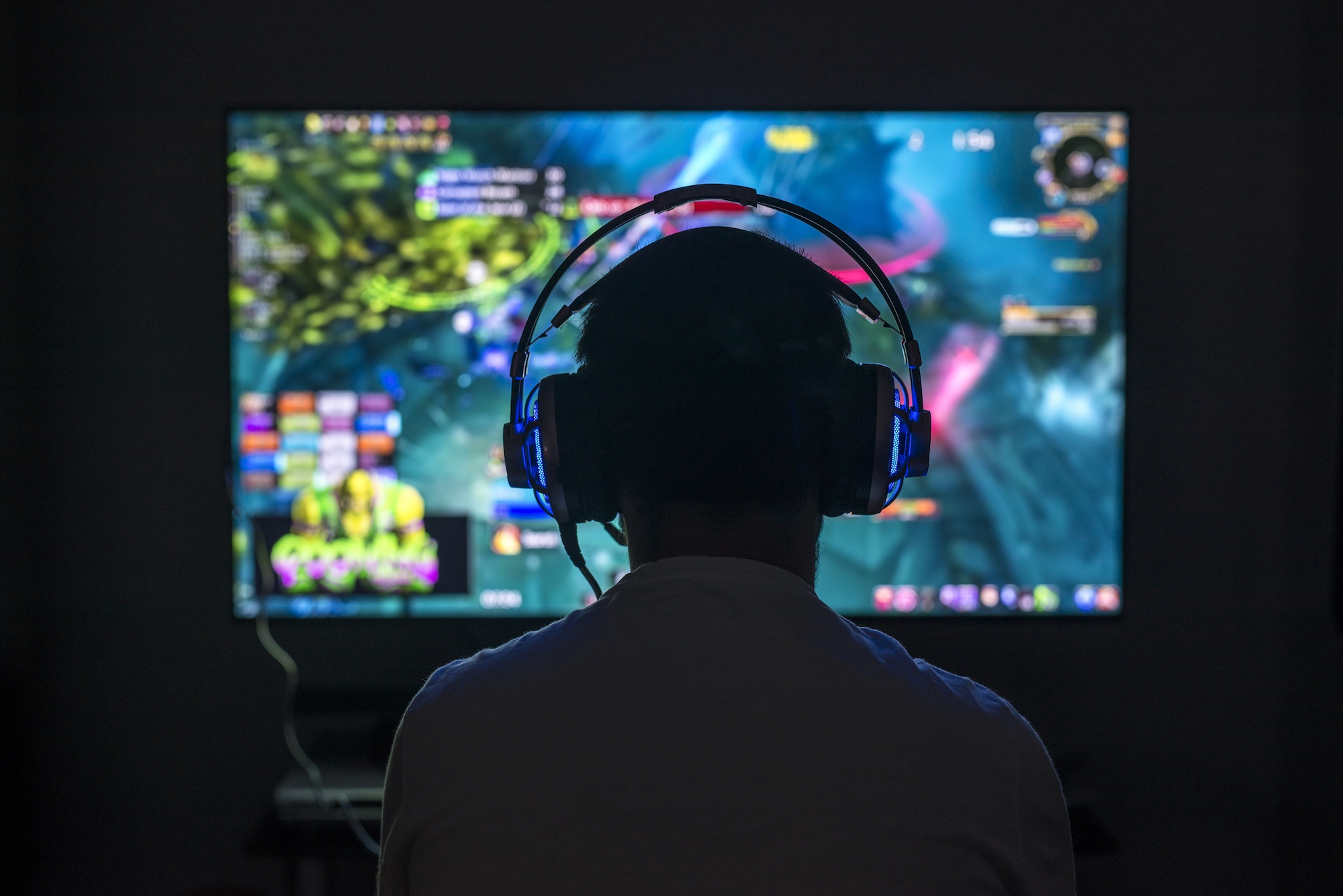Losing Control: Boys & Video Games

Many weekends I have emerged triumphantly from under a pile of laundry or work emails and thought, “what an awesomely productive day!” But then, as the silence of the house starts to sink in, my stomach drops as I realize why I have been so productive. My kids had just spent the last four hours playing video games.
If you are like me, you may have found yourself cringing at the realization of how much your son plays video games and struggling to navigate how much time is appropriate for him to spend with a controller in hand. Like me, you may have even endured stomping, screaming fits from a boy way too old for that sort of behavior, when he is told it is time to stop playing.
We are right to be concerned. According to a recent Pew Research Center report, 97% of teen boys play video games, and with the advent of gaming online, many boys use video game play as a means for social connection either with friends they know or friends they have made online. For some boys, these online social interactions are the most significant ones that they have. When they are devoting large amounts of time to cultivating virtual friendships, they are spending less time developing, strengthening, and practicing the skills they need to nurture face-to-face relationships. Communicating in chat or via headset does not allow boys to practice making eye contact when speaking or to interpret and react to another person’s visual cues.
As parents, we know that endless hours of video games, violent or otherwise, are not good for our children, and at one time or another most of us have let them continue to play for longer than initially intended, because when the kids are occupied, parents can get things done or have time to themselves. But, as Dr. Leonard Sax notes in his book, The Collapse of Parenting, we don’t do our children any favors by taking the path of least whining. Our children need us to assert boundaries with certain activities. By focusing on what we know is best for brain development and by doing what we know is best for our children, and while it may not be easy, we are ready to take back control over the console. Dr. Sax supports diversifying our children’s experiences. We don’t want them to just play video games or just play baseball or just do gymnastics. We want them to try swimming and chess and camping, and getting them to try new things will mean that we may have to cut back on time spent on other things.
Video Game Addiction
Can a boy be addicted to gaming? There is varying research about the instance of true video game addiction. “Internet Gaming Disorder” appears in the Diagnostic and Statistical Manual of Mental Disorders as a condition that is not yet classified as a formal disorder, but warrants additional clinical research and study. But for families whose sons exhibit symptoms like obsessive gameplay to the point that it has a significant negative impact on school work, social life, hygiene, or sleep, video game addiction is very real.
Although there is some disagreement among doctors on the status of gaming addictions, there is meaningful research that focuses on the impact that violent and sexist video games have on a young boy’s brain. Think Grand Theft Auto, with its depiction of women as either exotic dancers or prostitutes, or Call of Duty, with its violence. Players in these games earn points of gain “increased health” for committing acts of violence. When a boy plays games like this for hours on end, day after day, research shows they become more accepting of violence and violent images, and less empathetic to others, especially women.
What You Can Do
What can a parent do to help their sons set limits on video games? Set a family policy and enforce it.
For younger boys:
- Consider during the school year instituting a policy of no console or hand-held gaming during the week.
- On the weekend, give kids one hour of video game console time per day and give them one charge on their handheld devices per weekend. That means that the iPad is at 100% on Friday night and whenever that battery is exhausted, they are done.
- Know what games your son is playing. Games that involve creating, coding, or design like Scratch or Minecraft can help develop computational and higher order thinking skills. They are generally a better use of technology time than passive gameplay.
- Make sure that you talk to your son about the chat features in games. Many popular games and apps give players the ability to chat with other players. Boys need to know about protecting their identity and privacy online.
- Keep screens out of your son’s bedroom. This will help him establish good bedtime and sleep habits.
For older boys:
- Make sure that boys have completed all of their schoolwork before any recreational screen time during the school year.
- Set a time each evening when they put away any device for the night. Give them device-free time before bed to allow them time to wind down.
- Invest in an alarm clock so that devices can be charged in a central spot outside of the bedroom overnight.
- Talk to your son about how much and for what he uses technology. Help him understand the need for limits.
- If you have concerns that your son might be suffering from Internet Gaming Disorder, talk to your pediatrician about a referral for a mental health professional with experience in this area.
I expect that after my slide of weekend permissiveness there will be a battle to get back into the routine. It’s ok, I’m ready because I know how important it is and eventually, with persistence and consistency, your son will accept these new rules as the norm.
Lisa Ulery, the Director of Technology and Libraries at University School, has over 15 years of teaching and library experience in both public and independent schools. With a master's degree Instructional Technology, she is passionate about helping teachers and students balance their technology-rich lives.


%202.jpeg)
